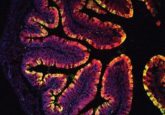Elevated protein marker in neuroblastoma may lead to prognostic test

Researchers from Georgetown University Medical Center (Washington DC, USA) have demonstrated that a protein produced by nerve cells appears to be elevated in the blood of patients with aggressive forms of neuroblastoma (NB). The findings of the study could lead to the development of a novel prognostic test for the disease or be utilized to monitor its progress.
The study, recently published in the American Journal of Pathology, investigated the clinical relevance and utility of a sympathetic neurotransmitter expressed in NB termed neuropeptide Y (NPY). Previous studies have identified the small protein as a potential therapeutic target for NB tumors owing to its Y5 receptor-mediated chemoresistance, and Y2 receptor-mediated proliferative and angiogenic activities.
“Given the severe late effects of anticancer treatment administered to infants and children, proper disease stratification is of utmost importance for neuroblastoma patients,” explained investigator Joanna Kitlinska (Georgetown University Medical Center).
Within the study, the team evaluated the expression of NPY and its receptors in RNA, tissue and serum from 87 neuroblastoma patients, and also tumor tissue from mice models. They observed that elevated NPY serum levels correlated with an adverse clinical presentation, poor survival and metastasis.
Additionally, they distinguished that strong Y5 receptor immunoreactivity was a marker of angio-invasive tumor cells, whereas Y2 receptors were uniformly expressed in undifferentiated tumor cells.
The results of the study supports previous research suggesting NPY plays a crucial role in NB biology, and validates it as a therapeutic target and potential prognostic marker for advanced NB. Furthermore, this study implicates the NPY/Y5 receptor axis in disease dissemination and resistance to therapy.
“In contrast to complex genetic analyses currently utilized to assess risk of the disease, the measurement of NPY levels in blood can be converted to a readily available analytical test. Using such easily accessible clinical material may also allow for minimally invasive longitudinal monitoring of the disease progression,” Kitlinska explains.
“If confirmed by further prospective studies, this finding may have a significant impact on the clinical management of patients with neuroblastoma,” Kitlinska concluded.
Sources: Galli S, Naranjo A, Van Ryn C et al. Neuropeptide Y as a biomarker and therapeutic target for neuroblastoma. Am. J. Pathol. DOI:10.1016/j.ajpath.2016.07.019 (Epub ahead of print) (2016); Georgetown University press release




